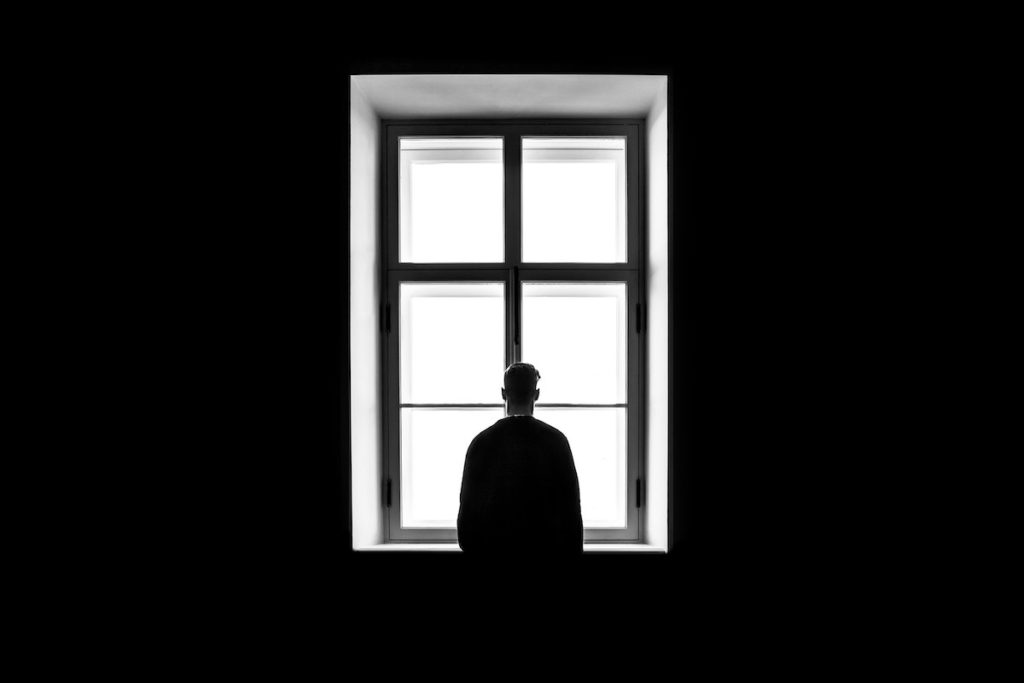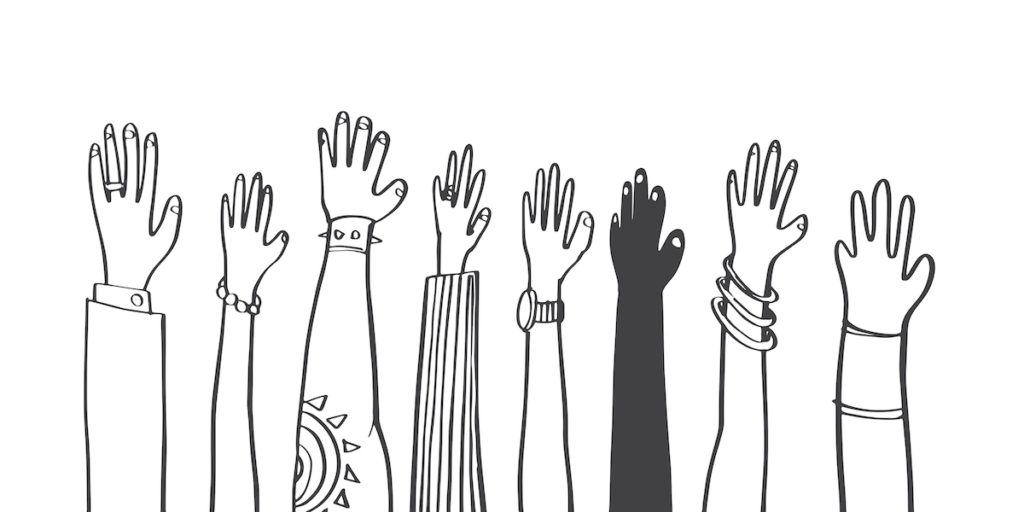
Mental health problems have become a very common addition to our lives with 41% of adults in the UK reporting a lived experience at some point during their life and nearly 30% having received a formal diagnosis (Mental Health Foundation, 2016).
Mental health professionals are not excluded. According to a national survey conducted in the US by the American Psychological Association (2010), mental health problems are even more common among clinicians due to the emotionally demanding nature of the job, exposure to distressing events, worries surrounding patients’ safety, pressure to meet therapeutic goals, professional isolation and poor balance between professional and personal life.
Do clinicians disclose their difficulties and seek help? Nearly half of those experiencing a mental health problem don’t. The same APA survey suggested that almost 50% of the clinical psychologists who were struggling with suicidal ideation were not open to talking about their thoughts and didn’t seek help. Recent studies indicated that mental health professionals often see their mental health problems as a weakness and try to remain resilient by coping on their own. They may experience embarrassment, be ashamed or afraid that someone will judge them negatively (Garelick, 2012). Therefore, many feel more comfortable to disclose problems to their family and friends compared to co-workers. The majority have also reported concerns regarding confidentiality, fears surrounding the impact such disclosure could have to their career and negative past experiences. Stigma has been raised as an important barrier to seek help. Digiuni et al. (2013) in their recent study targeting trainee clinical psychologists indicated that perceived stigma predicted attitudes towards seeking therapy.
Clinicians are often overlooked and the evidence is limited. Therefore, it is urgent to focus on mental health professionals who repeatedly have reported high levels of anxiety, depression and suicidal ideation. In this study, Tay et al. (2018) aimed to understand UK-based clinical psychologists’ experiences of mental health difficulties, disclosure and help-seeking behaviour and the impact of stigma.

Are mental health professionals as resilient to mental health problems as the general public may think or hope?
Methods
The data collection for this research was conducted through a national online survey, which was piloted and then revised. Participants were recruited through the mailing list of British Psychological Society’s Division of Clinical Psychology (DCP). Out of 3,600 subscribed qualified clinical psychologists, 892 responded. The final sample who met all the inclusion criteria consisted of 678 qualified clinical psychologists who live in the UK, with the majority being female, from a white background, between 30 and 50 years-old and qualified 2 to 10 years ago.
The survey included basic demographic questions, such as gender, ethnicity, age, years of experience, type of mental health problems experienced and questions on disclosure, help-seeking behaviour and stigma, which were taken from the following published scales: the Social Distance Scale, Stig-9, self-stigma subscale of the Military Stigma Scale, Secrecy Scale and Attitudes towards Seeking Professional Psychological Help Scale-Short Form.
Chi-square and Fisher’s exact tests were performed to analyse how mental health and disclosure target influenced the willingness to disclose and seek help. One-way ANOVA and independent t-tests were performed to analyse differences on perceived-stigma and attitudes towards disclosure and help-seeking.
Results
More than half of the respondents (62.7%) reported a lived experience of mental health problem, with depression and anxiety presented as more common. High levels of stigma were reported with perceived stigma being the most reported, followed by self-stigma and external stigma.
The respondents did not show a big need to hide their problems from other people, but out of 425 of those who experienced a mental health problem, 10.8% didn’t disclose their difficulties to anyone. They were more likely to disclose mental health problems to their social circles than their work settings, with 68.2% disclosing to family and 65.2% to friends compared to 44.5% who had disclosed to work settings. The most positive experience of disclosing was reported for friends, family, and colleagues, while the most negative was reported for employers. Overall, clinical psychologists didn’t have positive attitudes towards asking professional help, even though 84% sought help either from their GP or from a private psychiatrist.
Regarding the quality of help received, the most positive experiences were reported for private psychotherapists or clinical psychologists and the most negative ones for private psychiatrists. The majority of people who didn’t disclose their problems to anyone, reported negative judgment, fear of negative impacts on their career, self-image and shame.
Comparing people who had disclosed their feelings to their work or social circles to people who didn’t disclose at all, Tal et al. (2018) suggested significant differences on perceived stigma, self-stigma and external stigma, as well as concealment.

62.7% of respondents reported mental health problems, while help-seeking behaviour depended on perceived stigma, shame and assumed negative consequences.
Conclusions
Key sentences to remember:
- Clinical psychologists are human beings, they do experience mental health problems
- More than half are reluctant to disclose how they feel
- Barriers for seeking help: perceived mental health stigma, shame and negative consequences of disclosure particularly towards their career.
The Dalai Lama said:
We are human beings, not human doings.
People are allowed to feel low, anxious, or lonely, irrespective of their profession. Clinicians fight the stigma surrounding mental health illnesses, while they let it flourish when it comes to their own mental health. Although UK mental health services are outcome-driven, sometimes they forget the people who bring those admirable outcomes. The most realistic goal would be to start promoting openness on lived experiences of mental health problems and positive attitudes towards disclosure and help-seeking. Sometimes people just need to hear “It’s okay for you not to be okay”.
As mentioned by Tay et al. (2018):
At training level, there is an emphasis on emotional resilience and an unspoken belief that disclosing one’s mental health problems may be viewed with mistrust and could result in discrimination.
These beliefs should be challenged openly and we should strive to create a safe environment where people will feel able to share their thoughts without being afraid of judgment or other negative consequences.
A message to all people working in a mental health context (including myself):
Ignoring your own mental health can lead to the exacerbation of the problem and influence functioning, fitness to practice and the ability to provide the best quality of care.

Stigma acts as a barrier towards seeking professional help, especially for mental health professionals.
Strengths and limitations
The study is the largest to date focusing on mental health problems, stigma and views on disclosure, and help-seeking behaviour amongst clinical psychologists in the UK. Nevertheless, self-selection of the participants might have influenced the representativeness of the sample and the generalisability of these findings.
The results agree with previous literature on the proportions of clinicians reporting lived experiences, attitudes towards disclosure, reluctance of seeking professional help associated with stigma, fears of consequences, shame and negative self-image. Moreover, the study adds to the body of literature, as we gained a better understanding around the fears and concerns surrounding disclosure and help-seeking.

Self-selection of the survey participants might have produced unrepresentative results. People affected by mental illness may have been more likely to respond.
Implications
In order to tackle these beliefs more research is needed, while qualitative study designs would enable us to delve deeper to the root of the problem.
Furthermore, this study developed solid ground for new studies to be conducted focusing on the prevalence of lived experiences and untreated mental health illnesses among mental health clinicians, and differences among GPs, academics and clinicians.

We need to know more about the prevalence of mental illness in different health professional groups, so we can develop effective preventive and early interventions.
Conflicts of interest
None.
Links
Primary paper
Tay, S., Alcock, K., & Scior, K. (2018). Mental health problems among clinical psychologists: Stigma and its impact on disclosure and help-seeking. Journal Of Clinical Psychology, 74(9), 1545-1555. doi: 10.1002/jclp.22614
Other references
American Psychological Association (2010). Survey findings emphasize the importance of self-care for psychologists. Retrieved from https://www.apapracticecentral.org/update/2010/08-31/survey.aspx.
Digiuni, M., Jones, F. W., & Camic, P. M. (2013). Perceived Social stigma and attitudes towards seeking therapy in training: A cross-national study. Psychotherapy (Chicago, Ill.), 50(2), 213–223.
Garelick, A. I. (2012). Doctors’ health: Stigma and the professional discomfort in seeking help. The Psychiatrist, 36(3), 81–84.
Mental Health Foundation (2016). Fundamental Facts About Mental Health 2016. Mental Health Foundation: London. Retrieved from https://www.mentalhealth.org.uk/publications/fundamental-facts-about-mental-health-2016
Photo credits
- Photo by Raj Eiamworakul on Unsplash
- Photo by karolina skiścim on Unsplash
- Photo by Sasha Freemind on Unsplash

« Mental health problems have become a very common addition to our lives with 41% of adults in the UK reporting a lived experience at some point during their life and nearly 30% having received a formal diagnosis (Mental Health Foundation, 2016). »
Are these figures not indicative, rather, of an increased tendency to perceive mental illness in random people? I do not see how this perspective can be excluded based on available scientific evidence.
You can find more details on the editorial here:
https://www.mentalhealth.org.uk/publications/fundamental-facts-about-mental-health-2016